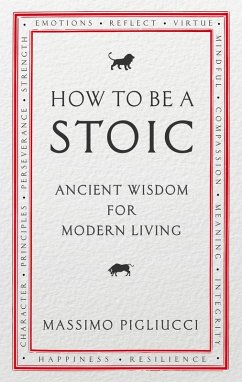
Elements of Morals (eBook, ePUB)
With Special Application of the Moral Law to the Duties of the Individual and of Society and the State
Übersetzer: Corson, Caroline Rollin

PAYBACK Punkte
0 °P sammeln!
In "Elements of Morals," Paul Janet presents a comprehensive examination of ethical theories, weaving together elements of philosophy, psychology, and sociology. His literary style is marked by clarity and precision, employing rigorous argumentative structures while remaining accessible to a broad readership. The book navigates the complexities of moral sentiments and the foundations of human conduct, situating itself within the tradition of moral philosophy that examines the interplay between individual duties and societal norms. Janet's systematic approach illuminates the practical implicati...
In "Elements of Morals," Paul Janet presents a comprehensive examination of ethical theories, weaving together elements of philosophy, psychology, and sociology. His literary style is marked by clarity and precision, employing rigorous argumentative structures while remaining accessible to a broad readership. The book navigates the complexities of moral sentiments and the foundations of human conduct, situating itself within the tradition of moral philosophy that examines the interplay between individual duties and societal norms. Janet's systematic approach illuminates the practical implications of moral theory in everyday life, reflecting an era grappling with the repercussions of the Enlightenment and burgeoning modernity. Paul Janet, a prominent figure in 19th-century French philosophy, was deeply influenced by the intellectual currents of his time, particularly the intersection of science and ethics. His scholarly pursuits were rooted in a desire to understand moral principles in a rapidly changing society, where traditional values were often called into question. Janet's background in both philosophy and the sciences allowed him to approach moral questions with a unique analytical rigor, positioning him to contribute significantly to the discourse on ethics. "Elements of Morals" is an essential read for anyone interested in the foundations of ethical thought. Janet's insightful analysis not only provides a framework for understanding moral issues but also encourages critical reflection on one's own values. This book is a vital resource for scholars, students, and general readers alike, inviting them to engage thoughtfully with the moral dilemmas that shape human experience.
Dieser Download kann aus rechtlichen Gründen nur mit Rechnungsadresse in A, B, BG, CY, CZ, D, DK, EW, E, FIN, F, GR, H, IRL, I, LT, L, LR, M, NL, PL, P, R, S, SLO, SK ausgeliefert werden.













